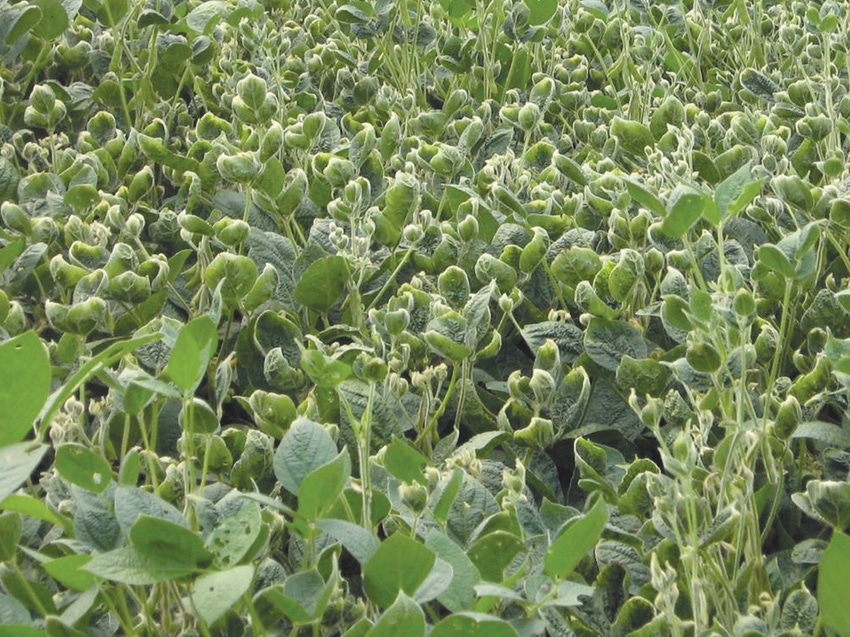
Dicamba-tolerant soybeans and cotton brought great hope for Mid-South producers battling herbicide-resistant pigweeds. However, following a 2016 growing season of plentiful off-target drift cases, it also stoked fears of those worried more would be in store for 2017.
Those hopes and fears weren’t without foundation. While there are many reports of success with the new technology, in mid-June, the numbers of drift complaints to state regulatory agencies are rising.
“The first year a new weed control system is used widely by famers is when everyone’s expectations meet reality,” wrote Larry Steckel, University of Tennessee weed specialist, a few days ago. “The two expectations going into Xtend was there would be a lot of drift and easy Palmer amaranth control was finally back. In Tennessee, both of these expectations in the early going have proven to be unfounded.”
Arkansas
In Arkansas, the story is a bit different. With the hindsight of the 2016 spraying season with too-often disastrous off-target crop damage, the Arkansas State Plant Board’s Pesticide Committee has recommended an immediate halt to the 2017 application of dicamba.
“It’s been up and down,” says Bob Scott, University of Arkansas weed specialist. “It seems like the applications began pretty well. On the positive side, we’ve had a lot of second applications going out and are doing well. In some fields, we’ve struggled to control pigweed but, the more consultants I talk to, the more it seems that second application is doing the job.”
On the other hand, “there are fields with multiple metabolic resistant pigweed – PPO-resistance, especially – where dicamba isn’t working too well. The complaint numbers have really picked up in the last 10 days, or so.”
Another weed, red vine, is being handled well by dicamba. “Yesterday, I had some consultants call and say the dicamba is providing to be great on this problem red vine. That’s a hard weed to control – not even with Roundup.
“I’ve gotten plenty of calls and messages from guys saying dicamba has helped lots of fields. ‘We’re killing pigweeds with this and in dealing with broadleaf weeds including red vine and trumpet creeper on difficult acres.’”
What about the 100-plus complaints to the Arkansas State Plant Board?
“On the number of complaints, the region seems to be a little ahead of where we were last year. There have been some buffer violations, some guys who haven’t been as careful as they should be. There’s another percentage of the drift complaints that are hard to understand – how did the product move so far? It’s what we’ve worried about all along: it takes such a very, very small amount to ‘cup up’ a soybean crop.
“Drift that might normally have gone 50 or 60 yards with one product is, with dicamba, affecting an entire field. I think that just points to high sensitivity in (non-tolerant) soybeans.”
Does the rising number of complaints point to less willingness of producers to give their neighbors cover this year?
“It’s hard to speculate on exact motives. But, after (2016), there’s no doubt people are now very wary of dicamba drift and are less willing to give anyone the benefit of the doubt. There are producers out there – and rightfully so – who believe they should be able to grow whatever soybean type they want and they’re unwilling to put up with any off-target movement. They believe the warnings from last season were plenty strong and that’s enough.”
Scott and colleagues have followed up with some of the soybeans drifted on earlier this spring. “Our data shows small amounts of dicamba drift in the early vegetative stages can ultimately be overcome by the crop. Yield wasn’t affected badly and a lot of the current crop has recovered nicely. That doesn’t erase the fact the crop should be 6 inches taller and it’s set back but the good news is they’re coming back and should provide close to a normal yield.”
The soybeans now flowering and reproductive stages are another matter. “The calls I’m getting now are in more mature fields and that adds another level of concern. The data says at this point yield can be hurt.”
Mississippi
Across the river in Mississippi, Jason Bond, Mississippi State Univeristy weed specialist, has been walking fields looking “at dicamba damage where dicamba shouldn’t have been. I have looked at or gotten calls on fields all the way from Tunica County to Yazoo County and from the (Mississippi) River all the way to the hills. We’re seeing this in all four corners of the Delta.
“It seems we’ve been spending the majority of our time in the central Delta. There’s a mix of technologies and that’s where the majority of the (Problems) appear to be showing up. Where the pigweed problem has been worst for the longest – along the river – there’s more Xtend acres and the drift isn’t as pronounced. But that isn’t a hard rule and you can’t make a blanket statement because we looked at two or three (fields hit with off-target applications) last week in Tunica County. And I got a call this morning in Coahoma County with drift problems.”
As of June 19, the Mississippi Bureau of Plant Industries had received 27 official drift complaints.
“The first complaint I saw last year was at the end of June. At the end of the year, they’d gotten in the neighborhood of 10 complaints. That should give you an idea of the situation.
“I don’t know if folks are quicker to make the call or if it’s just a function of more (dicamba-tolerant) acres being planted along with more dicamba applications. I do know guys are still reluctant to point at their neighbor and complain -- that hasn’t changed. And there are cases where fields have been sprayed as they were supposed to be but there was still off-target movement for some reason.
“The majority of the problems have been on soybeans. There is a significant acreage of sweet potatoes in a Delta county that has had some trouble with drift. There have also been a couple of reports on peanuts and a couple on cotton.”
About the Author(s)
You May Also Like






